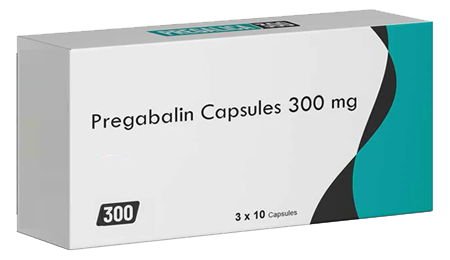Buy Pregabalin (Lyrica) Online – Genuine Medication for Neuropathic Disorders

| Drug Name: | Pregabalin |
|---|---|
| Tablet Strength: | 200 pills x 300 mg |
| Best Price: | $139.50 (Per Pill $0.70) |
| Where to buy | OnlinePharmacy |
What is Pregabalin?
Pregabalin, commonly known by its brand name Lyrica, is a medication widely used to treat a variety of conditions, including epilepsy, neuropathic pain, fibromyalgia, and generalized anxiety disorder. Initially developed for epilepsy and neuropathic pain, its applications have expanded to benefit athletes in various ways.
Uses of Pregabalin
- Epilepsy: Pregabalin is used as an adjunctive therapy for partial seizures. It helps to reduce the frequency of seizures by stabilizing electrical activity in the brain.
- Neuropathic Pain: Pregabalin is highly effective in treating neuropathic pain, which is pain caused by damage to the nerves. This type of pain is common in conditions such as diabetes (diabetic neuropathy), shingles (postherpetic neuralgia), and spinal cord injury.
- Fibromyalgia: Fibromyalgia is characterized by widespread musculoskeletal pain, fatigue, and tenderness in localized areas. Pregabalin helps alleviate pain and improve function in patients with fibromyalgia.
- Generalized Anxiety Disorder (GAD): Pregabalin is also approved for the treatment of generalized anxiety disorder, reducing symptoms of anxiety and improving overall quality of life.
Using Pregabalin to Enhance Performance
Numerous athletes have reported significant improvements in their recovery and performance after using Pregabalin. These success stories highlight the medication’s ability to manage chronic pain, reduce anxiety, and improve sleep quality, ultimately leading to better performance and a quicker return to training and competition.
Pregabalin is particularly beneficial in postoperative recovery for athletes. After surgical interventions, managing pain effectively is crucial for a swift recovery. Pregabalin’s ability to alleviate neuropathic pain helps patients resume physical activity sooner, contributing to faster healing and rehabilitation.
How Pregabalin Helps Athletes Recover Faster?
Pain Management: One of the most significant advantages of Pregabalin in sports medicine is its potent pain-relieving properties. Athletes frequently endure chronic pain due to injuries involving muscles, joints, and nerves. Pregabalin effectively alleviates this neuropathic pain, making it an essential medication for athletes recovering from surgeries or severe injuries. By reducing pain, Pregabalin allows athletes to engage in physical therapy and training sessions more effectively, thereby accelerating their recovery process.
Reducing Anxiety and Improving Sleep: High anxiety levels and poor sleep quality can severely impact an athlete's performance and recovery. Pregabalin has been shown to reduce anxiety and improve sleep quality, which are critical for optimal recovery and performance. Athletes facing pre-competition anxiety or insomnia can significantly benefit from Pregabalin, as improved sleep quality and reduced anxiety promote faster recovery and enhance overall well-being.
Dosage Recommendations
The dosage of Pregabalin varies depending on the condition being treated and the patient's response to the medication.
- Epilepsy:
- Starting Dose: 150 mg per day, divided into two or three doses.
- Maintenance Dose: Can be increased to 300 mg per day based on individual response and tolerance.
- Maximum Dose: 600 mg per day.
- Neuropathic Pain:
- Starting Dose: 75 mg per day, divided into two or three doses.
- Maintenance Dose: Can be increased to 150 mg per day within one week, and further to 300 mg per day as needed.
- Maximum Dose: 600 mg per day.
- Fibromyalgia:
- Starting Dose: 75 mg twice daily.
- Maintenance Dose: Can be increased to 150 mg twice daily within one week, and up to 225 mg twice daily if necessary.
- Maximum Dose: 450 mg per day.
- Generalized Anxiety Disorder:
- Starting Dose: 75 mg per day, divided into two or three doses.
- Maintenance Dose: Can be increased to 150 mg per day, with further increases to 300 mg per day if needed.
- Maximum Dose: 600 mg per day.
Dosage and Recommendations for Pregabalin in Sports Medicine
Athletes should start with a low dose of Pregabalin and gradually increase it to minimize the risk of side effects. It’s also important to avoid abruptly stopping the medication without consulting a healthcare professional, as this can lead to withdrawal symptoms. Regular monitoring and follow-ups with a healthcare provider are essential to ensure the medication is working effectively and safely.
What Are the Common Side Effects of Pregabalin?
Common side effects include:
- Dizziness
- Drowsiness
- Dry mouth
- Blurred vision
- Weight gain
- Difficulty concentrating
- Swelling of hands and feet
Less common but more serious side effects may include:
- Severe allergic reactions (such as rash, itching, swelling)
- Suicidal thoughts or behavior
- Muscle pain or weakness
- Changes in heart rate
Patients should be aware of these potential side effects and consult their healthcare provider if they experience any adverse reactions.
Advantages of Pregabalin
Effectiveness: Pregabalin has proven to be highly effective in reducing various types of pain, which is crucial for patients and athletes dealing with chronic injuries. Its ability to alleviate pain allows athletes to focus on their recovery and return to their training and competition routines more quickly.
Improved Quality of Life: By reducing pain and anxiety, Pregabalin significantly improves the overall quality of life. Enhanced sleep quality and reduced anxiety contribute to better mental and physical health, enabling athletes to perform at their best.
Comparing Pregabalin with Other Pain Relievers
When compared to other pain relievers commonly used in sports medicine, Pregabalin offers several distinct advantages. Unlike nonsteroidal anti-inflammatory drugs (NSAIDs), Pregabalin specifically targets neuropathic pain and is less likely to cause gastrointestinal issues. Furthermore, its dual role in reducing anxiety and improving sleep sets it apart from other pain management options, providing a holistic approach to care.







